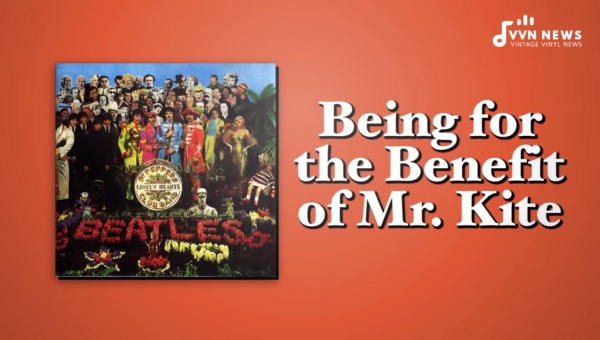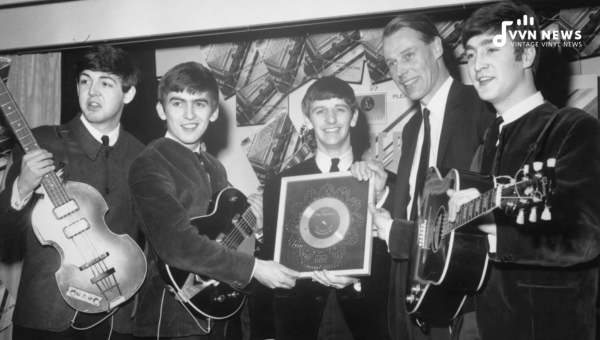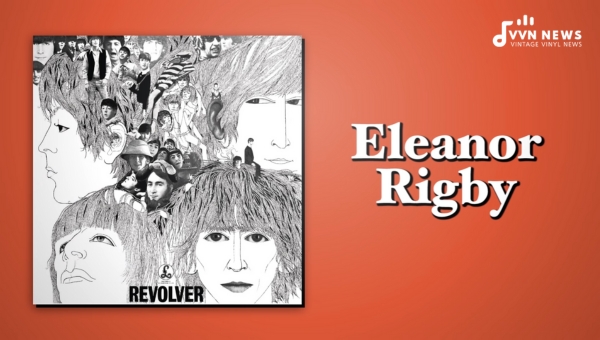The eternal allure of the Beatles never fades, and the intrigue around who the so-called “Fifth Beatle” was remains a web of mystery.
When it comes up to the fifth Beatle: three were close, Clapton was moments away, and one can’t help but delve deeper into the profound relationships and creative alliances that forever shaped this iconic band.
Over the years, names like Stuart Sutcliffe, Pete Best, and Brian Epstein have taken turns in the spotlight as potential candidates for that esteemed title.
Time had unveiled that rock legend, Eric Clapton, too, had his moment when he was virtually a whisper away from joining their musical brotherhood.
Join me as we embark on an enlightening journey into what might have been one of rock ‘n roll’s most famous line-ups.
Who are The Beatles?
The Beatles were an iconic British rock band formed in Liverpool in 1960, consisting of John Lennon, Paul McCartney, George Harrison, and Ringo Starr.
Their sound revolutionized popular music with an innovative approach to songwriting and recording.
The Beatles are often heralded as the leaders of the “British Invasion” of the U.S. music scene during the 1960s. With over 800 million albums sold worldwide, they are the best-selling band in history.
The band separated in 1970, but their profound impact continues to influence every generation of musicians and songwriters after them.
Their influence on popular music was profound; they pioneered concepts like the self-contained band writing its own material and studio experimentation.
Much credit is also given to them for expanding rock’s range into various other genres, incorporating elements from classical to Indian music.
While their breakthrough in shaping modern music is unmatched, they also emerged as powerful cultural influencers endorsing an era of social change.
Their enduring relevance resonates globally even today as they continue to inspire generations with their legacy.
Also Read: What Is Musical Anhedonia? [Why Some People Don’t Like Music]
The Core Four: A Snapshot

Few bands can claim such a seamless blend of individual talents as The Beatles, affectionately known as The Fab Four.
Even the casual fan is likely familiar with their iconic lineup: John Lennon, Paul McCartney, George Harrison, and Ringo Starr.
The distinctive qualities that each brought to the band – what made them individually unique yet collectively extraordinary – are worth further examination.
John Lennon
John Lennon is often considered the soul of The Beatles. Known for his raw energy and profound lyricism, he was the band’s co-lead vocalist and rhythm guitarist.
Famous for his social activism, Lennon used music as a platform to push for peace—a message symbolically embodied in anthems like “Imagine” and “Give Peace a Chance.”
Paul McCartney
As the flexible bassist and co-lead vocalist for The Beatles, Paul McCartney was renowned for his stunning vocal range and innovative bass-playing techniques.
An adept multi-instrumentalist is also responsible for many of their grand symphonic flourishes.
Often partnered with Lennon in songwriting, producing some of the most beautiful and unforgettable hits in their discography, like “Yesterday,” “Eleanor Rigby,” and “Blackbird.”
George Harrison
George Harrison was known as The Quiet Beatle, but his role was anything but silent.
As lead guitarist, his distinctive playing style helped shape The Beatles’ sound.
Pioneering incorporating Indian music into rock ‘n roll (the sitar on “Norwegian Wood” being an example), Harrison added an exotic flavor to several songs.
Ringo Starr
Ringo Starr’s contribution as a drummer was fundamental to The Beatles’ sound—serving as their human metronome with unmistakable drum patterns that still resonate today.
Not only did he provide catchy beats on hits like “Ticket to Ride,” he occasionally sang lead vocals on memorable songs like “Yellow Submarine” and “With A Little Help from My Friends.”
Each member contributed their distinct flair that solidified their influence over pop culture and iconography worldwide.
Their ability to combine individual brilliance while maintaining group unity played no small part in helping them make history.
The Concept of “The Fifth Beatle”
To fully understand the concept behind the term “the Fifth Beatle,” it is necessary to delve deeper into its origins and implications.
As a pop culture artifact, the title has been whimsically attributed to various individuals connected closely with the Beatles.
Derived from a comment made by Paul McCartney during an interview in 1997, he candidly referred to George Martin, their record producer, as the “Fifth Beatle.”
This statement sparked an influx of intrigue and speculation about who was integral enough to the band’s journey to earn this honorary title.
Over time, numerous individuals were mentioned in this context: George Martin for his extensive production work and Stuart Sutcliffe as bassist in the band’s early days.
Pete Best, who was their original drummer before Ringo Starr joined, or even Brian Epstein for managing them at the peak of their career.
All these individuals contributed significantly to shaping The Beatles’ journey both off-stage and on-stage.
Hence, they were considered worthy of being called the “Fifth Beatle.”
It should be noted that this debate holds no official merit. It essentially carves out space for extending recognition beyond the core members of The Beatles.
Similarly factual or not, given importance or dismissed lightly, this intriguing matter will persistently add a remarkable twist when recounting the history of this iconic band.
The tag “Fifth Beatle” highlights those personalities that played a crucial role in shaping The Beatles’ extraordinary narrative and impacted them profoundly during various phases of their musical journey.
Also Read: Who Was Israel Kamakawiwo’ole? 2025 [The Music Of Hawaii]
Candidates For The Fifth Beatle: ‘Three Were Close’

Stuart Sutcliffe
Stuart Sutcliffe was perhaps the first to stake a claim as the ‘Fifth Beatle.’ A close friend of John Lennon from their days at the Liverpool Art College, Sutcliffe is intrinsic to the band’s early history.
He even came up with their name, ‘The Beatals,’ which later evolved into ‘The Beatles.’
Sutcliffe had a significant role in shaping The Beatles’ iconic image and music. He played bass for the band in its nascent stage, adding an artistic touch that influenced their direction and style.
Though he only featured on a few Hamburg recordings – an essential phase in the Beatles’ early journey – he helped create the band’s distinctive look.
His decision to focus on his art career over music indirectly led to McCartney taking up bass duties.
Pete Best
In the pre-Ringo Starr epoch of The Beatles, Pete Best drummed out solid beat foundations for Lennon, McCartney, and Harrison.
He joined The Beatles in 1960 and played a crucial role during a transformative time in Hamburg – a period that saw them amplify their skills and sound.
Best was known for his quiet demeanor and signature hairstyle–the “Beatle cut.”
Despite being aesthetically part of what would make the group so loved globally, he was dismissed from The Beatles under controversial circumstances just as they were about to record their debut album “Please Please Me.”
While he might not officially get recognition as the “Fifth Beatle,” without him, that early success story could have been different.
Billy Preston
When talking about potential candidates for that elusive fifth spot, Billy Preston’s stint with The Beatles cannot be overlooked either.
Known as “The Fifth Beatle” mainly because of his musical contributions during the “Let It Be” sessions, Preston’s notable presence provided much-needed harmony amidst increasing tension among band members In that contentious period.
Working with them on tracks like “Get Back,” Preston breathed fresh life into their sound with his keyboard skills.
Moreover, he is one of only two non-band members credited on a Beatles release–his credit currently reads: “The Beatles with Billy Preston.”
These feats make him an unofficial yet pivotal ‘Fifth Beatle.’ Addressing his importance, George Harrison once said, “If there were ever a fifth Beatle, it was Billy.”
Eric Clapton’s Near-Miss with Becoming the Fifth Beatle
Perhaps one of rock history’s most compelling ‘what if’ scenarios revolves around the legendary Blues-rock guitarist Eric Clapton. Believe it or not, Clapton could have been a part of the Beatles!
This idea spun from when tensions were running high within the group, and George Harrison briefly walked out during the recording of ’The White Album’.
Clapton’s Band Dissolution and The Beatles’ Crisis
In 1969, after his band Cream’s sundering, Eric Clapton was searching musically for something new.
Meanwhile, The Beatles were encountering their share of trials. Their close-knit fabric was beginning to fray with personal rifts and creative disagreements brewing beneath their united front.
When The White Album Saw a Gray Day
During this turbulent phase, while amassing tracks for ‘The White Album’, their contrasting artistic visions turned into stormy exchanges between George and Paul, especially over Harrison’s composition ‘Not Guilty.‘
This culminated in an agitated Harrison walking out mid-session, leaving The Beatles in disarray.
I Want You: John Lennon’s Subtle Proposal
Pressured by looming deadlines and band politics brewing tension amidst McCartney’s dominance on ‘Hey Jude,’ John Lennon confided in Magic Alex Mardas that he was considering getting his friend Eric to replace George.
Clapton had dialed brilliance in previous collaborations like Cream’s “Badge” and notably played lead for their live performance rendition of ‘While My Guitar Gently Weeps.’
George returned to sessions days later, resuming membership but under stipulations marking symbolic shifts within The Beatles’ unity.
It no longer simply symbolized an extra musician or manager – it became a mere whisper away from realities that might have deepened our perception of Clapton’s artistry and The Beatles’ explorations.
Also Read: 30 Crazy Science-Supported Facts About Music [2025 Latest]
Legacy of The Fifth Beatle Controversy

Despite the passing of many decades, the speculation around who might rightfully claim the “Fifth Beatle” title shows no signs of slowing down.
Indeed, it’s become a cultural phenomenon in itself, with a considerable share of column inches and screen time devoted to this topic.
Whether or not one prescribes to the idea that there genuinely was a “Fifth Beatle”, it is undeniable that these individuals had an indelible impact on band history.
The contributions made by Stuart Sutcliffe, Pete Best, and others laid the groundwork for what would later emerge as one of the most iconic bands in history.
When looking at Eric Clapton’s near-miss of becoming the fifth member and subsequent collaborations with The Beatles, one can’t help but think about how different things might have been.
His formidable talent could have potentially led the band along an even more experimental path.
The continuing intrigue not only underlines The Beatles’ enduring impact but also shows how intertwined their story is with their wider social circle.
As each narrative emerges from the shadows, they bring fascinating insights into a band that has endlessly captivated us all.
Their legacies also benefit from this everlasting connection; ultimately, it’s a testament to their contributions that we continue to debate their place within The Beatles phenomena.
FAQs About The Fifth Beatle
Who was the founder member of The Beatles?
John Lennon was the founder member of The Beatles.
How did Eric Clapton come close to becoming a part of The Beatles?
In 1968, due to band tensions, George Harrison momentarily left the group and suggested that Clapton might fill his role, which was later resolved.
Who is Stuart Sutcliffe?
Stuart Sutcliffe is a friend of John Lennon who was part of The Beatles during their early years, predominantly known for his influence on the band’s image.
Who were the possible candidates for ‘the Fifth Beatle’?
Stuart Sutcliffe, Pete Best, and Brian Epstein are often considered candidates for this title.
What role did Brian Epstein play in The Beatles’ career?
As their manager from 1962 until his death in 1967, Brian Epstein played an instrumental role in promoting and catapulting The Beatles to global prominence.
Conclusion
The mythical “Fifth Beatle”‘s identity could be attributed to numerous individuals who influenced The Beatles’ journey.
Still, the fascination predominantly revolves around Stuart Sutcliffe, Pete Best, and, surprisingly enough, Eric Clapton.
His brush with Beatles membership adds an intriguing facet to this iconic band’s lore.
However this quirk of rock history unfolded, it remains a testament to the Beatles’ unwaning allure and profound influence on the rock music storyline.
The truth of who the fifth Beatle was? It seems that’s left in time’s hands, leaving us forever wondering what would’ve been if Clapton had become one of the “Fab Five.”








